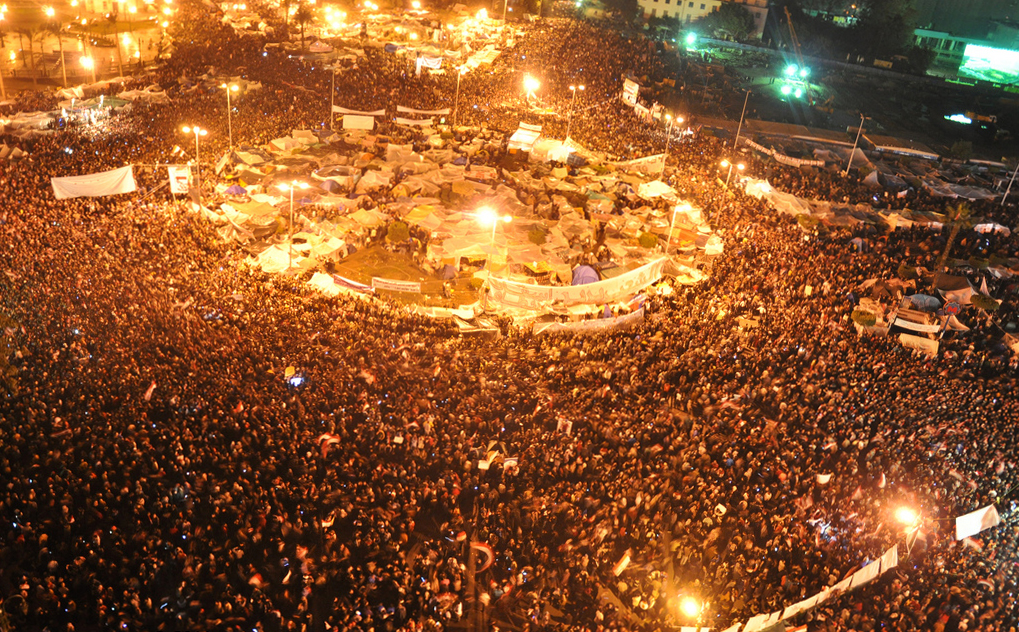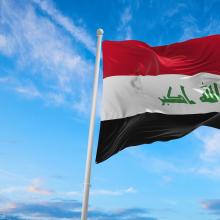February 12, 2024

Millions of protestors in Tahrir Square, February 11, 2011 - Jonathan Rashad, CC BY 2.0, via Wikimedia Commons
Thirteen years after Egyptians courageously took to the streets and forced the autocratic president Hosni Mubarak to step down after nearly three decades in power, we, the undersigned organizations, express our unceasing solidarity with the Egyptian people’s unmet demands for “bread, freedom, and social justice.” Amid ongoing political repression and a deepening economic crisis, we call on the government of President Abdel Fatah al-Sisi to respect its obligations under international law and take immediate action to reverse the human rights crisis inside the country, including by releasing the tens of thousands of individuals unjustly detained; ending enforced disappearances, extrajudicial killings, and torture; and halting the attacks against independent media, civil society, and peaceful protesters. To address the intensifying economic crisis, we urge the al-Sisi government to uphold the social and economic rights of all through universal social protection and investments in healthcare and education as required by Egypt’s constitution. We also urge the government to pursue policies that protect marginalized communities, uphold the rule of law, and reverse attacks on the independence of the judiciary and anti-corruption institutions.
On February 11, 2011, after eighteen days of widespread pro-democracy protests, Mubarak resigned, ending his decades of authoritarian rule. Many protesters, who turned out in mass demonstrations in response to endemic corruption, poor governance, and systemic repression, met the announcement with celebration, hoping Mubarak’s resignation was the first step in establishing a democratic state. Over the next two tumultuous years, the country was governed by the Supreme Council of the Armed Forces and then President Mohammed Morsi, in the country’s first-ever free and fair election. Morsi was eventually deposed in a 2013 military coup that brought Abdel Fatah al-Sisi to power.
After a decade of al-Sisi’s brutal authoritarian rule, however, protesters’ calls for “bread, freedom, and social justice” are further away than ever before. Al-Sisi has orchestrated an unprecedented crackdown on civil liberties, subverted the rule of law, and stamped out the political opposition. Human rights organizations have documented surges in arbitrary detentions and death sentences, torture so widespread it may amount to a crime against humanity, and routine practices of enforced disappearance and unending pretrial detention. Al-Sisi has expanded his control over the judiciary and state institutions and continues to target, harass, and surveil civil society, political opponents, and independent media organizations. Most recently, we have been deeply concerned by reports of horrific conditions and deaths due to medical neglect and suicide inside of Badr Prison, the appalling six-month ban levied against Mada Masr’s website, and the slew of violations that took place in Egypt’s recent unfree and unfair presidential election.
Additionally, al-Sisi’s government is completely failing to protect the economic and social rights of Egyptians. Millions of Egyptians are struggling to meet their basic needs or afford essential goods due to soaring inflation, and the outlook for Egypt’s economy in 2024 appears just as bleak.
We urge the Egyptian authorities to immediately take steps toward addressing the needs and respecting the rights of Egyptians by releasing all political prisoners, ending practices of torture and ill treatment of detainees and protecting civic space. Only then can the demands of “bread, freedom, and social justice” finally be achieved. Egyptians hoped for a better future after Mubarak’s ouster, but the reality for too many Egyptians living under the al-Sisi regime is one tragically far worse than under Mubarak.
Signatories:
Belady an Island for Humanity (BIH)
Cairo Institute for Human Rights Studies (CIHRS)
CIVICUS
Committee for Justice
Egyptian Front for Human Rights (EFHR)
Egyptian Human Rights Forum (EHRF)
EgyptWide for Human Rights
FairSquare
Femena
Freedom House
Human Rights First
Human Rights Watch
HuMENA for Human Rights and Civic Engagement
International Service for Human Rights (ISHR)
MENA Rights Group
Middle East Democracy Center (MEDC)
PEN America
Sinai Foundation for Human Rights
The Tahrir Institute for Middle East Policy (TIMEP)






